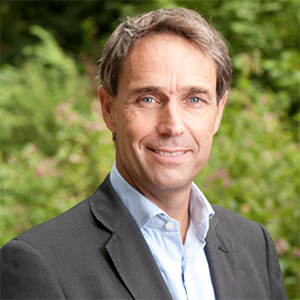
Davos is casual. No tie or the feminine equivalent. It has the highest density of movers and shakers from all walks of life anywhere. That’s why the casual is so important: when you run into the proverbial Bono, you walk by like you were on a busy shopping street and he is just another stroller. That can be a tough pose sometimes.
“Hallooooo!” a man said to the side of me. I was leaning against a wall, looking at my iPhone WEF app. Distracted, I looked up and saw the Hallo Man extend a hand to German minister of finance Wolfgang Schäuble. Of course I did the casual Bono thing, but I found it took effort. My ears were locked on. “Yes – and now with Austria, it looks bad,” I heard Wolfgang say, and immediately connected it to the migration crisis.
“Halloooo!” it continued, as somebody new joined. “Of course you remember the prime minister of Norway…?” asked the Hallo Man (who I now suspected was also a prime minister). A blond, sizeable woman surrounded by advisers greeted Schäuble as he indicated he clearly knew who she was. Like most people at Davos, Norway was in a hurry and did not stay long – she was probably on her way to one of the hundreds of bilaterals that take place here around the sessions. Wolfgang had to go as well and wheel-chaired on. I saw him half an hour later in a session on the future of Europe.
Acid and catastrophe
In that panel I heard prime ministers Mark Rutte (Netherlands, and representing the Presidency of the Council of the European Union), Manuel Valls (France), and Alexis Tsipras (Greece); Emma Marcegaglia (Chairman of the Italian corporation ENI and president of BUSINESSEUROPE); and Wolfgang Schäuble all expressing commitment to ‘Europe.’ But then came the nuances, which show how important national sentiments are in international governance. And how acid drives politicians to cry catastrophe.
For Valls, terrorism is clearly a very big priority; in fact, it’s a ‘guerre’ (borrowing from Bush Jr.) Rutte put borders high on the priority list and was adamant: the migration crisis must be under control in the next six to eight weeks, or the hordes will overrun us. Tsipras’s focus was on solidarity: Europe as one, sharing burdens. Schäuble’s nuance was economics and the basic contractual principle that when you sign an agreement, you’re bound by it.
All panellists seemed to share the idea that the EU needed to become more competitive, more flexible, more innovative, and more entrepreneurial. Emma Marcegaglia pushed this point very hard, adding that the EU is also about values. EU governance is visibly about allowing nuances within the bigger picture to be there, to find ways to live with them, and to work to implement them. “Europe is not easy . . .” said Schäuble. He sounded a bit like a tired family man after a Christmas dinner: I love them, I need them, but boy – it’s not always easy.

The media, however, preferred acid. To continue with the metaphor: their focus was almost entirely on the differences between the uncles, aunts, children and grandchildren; so much so that the family was forgotten.
That inability of the media to capture the struggle for compromise in the face of different national sentiments, choosing instead to frame it in terms of total win or total loss, may be a reason why politicians resort to catastrophe politics. Rutte’s six to eight weeks and the threat of hordes is something I have come to recognize as a much-used political weapon in EU decision-making: brinkmanship by painting a catastrophic scenario of losing it all - Greece, Brexit, borders, hordes - and using that to try to forge consensus.
It might seem smart at first sight. However, all children who have been read the tale of the boy who cried wolf know the problem with such an approach. The day will come when people will stop believing there is a catastrophe. Then what? If international decision-making gets lost in a game of catastrophe, rather than a respectful process of problem-based understanding, disaster and disintegration are likely to be upon us. Without wanting to come across as blaming the media and politicians for everything, it seems that developing procedures that drive and support more nuanced, problem-based decision-making is something we badly need.
SDGs
The Sustainable Development Goals (SDGs), adopted by all UN member states in September last year at the celebration of 70 years of the UN, were much discussed and seem to be mainstreaming. Goal 16 deals with justice and is the one I particularly follow. 'Technology' was generally seen as an optimistic way to achieve the SDGs. However, this was not connected with justice, where I see a lot that technology can do.
Perspectives on the SDGs differed: on one side those who say that the SDGs and the Paris Climate goals are one and should be joined, and others (mostly business) who say that there is consensus on 'Paris' but that that is not the case for the SDGs, at least not in the same way. The bigger question here is the 'togetherness' or 'separateness' of human rights, climate, environment, and the different roles that government, business, and civil society play in that. I'm not sure how much fuel I want to burn on this question. Goal 16 is useful because it provides a peg on which we can hang a lot of justice work with which to engage funders.
In a session on the SDGs and accountability (who is accountable for realizing them, and to whom?) an interesting picture emerged of diverse, competitive, diffuse, bottom-up & top-down governance in which accountability was equally diverse and no longer linear as in ‘parliament’ and ‘general assembly.’ There was a sense that the old 'UN-states-only' way of working went out the window during the Paris climate decision making process. A better approach, and the agreed success formula for Paris: get broad agreement around a goal, mostly based on values (what is shared as 'the right thing to do') and then ask stakeholders (states and others) not what they want, but what they can bring to achieve that goal. Support that by lots of knowledge, data, and information sharing, and presto: things happen. Don't try to over-manage them. I found it very interesting to pick up an emerging consensus on such an approach. We can only hope it mainstreams.
Values
The core theme of the 2016 Davos meeting was the Fourth Industrial Revolution. After 45 years of WEF, Klaus Schwab sees we are on the cusp of momentous change, with both huge opportunity and huge peril. Three things make that change so profound and unique in human history: (1) the speed at which it is happening; (2) the breadth and depth of it affecting not just ‘what’ and ‘how’, but also the ‘who’ we are; and (3) the systems impact it is having (which would include, I assume, the justice/legal system as well).
As a justice nerd, I was amazed about how many great ideas emerge at Davos for solving global and national challenges connected with this revolution but how little thought is given to the justice infrastructure that is needed to support all that. A functional justice system is either assumed or seen as a relatively minor and manageable task that can be done at the end.
At the risk of being seen as the hammer for which every problem is a nail, for me things are not that simple. The mechanisms and resources we have for redesigning justice to meet challenges the world faces are not all that great. Of the 178 states monitored in the 2015 Fragile States Index, the word 'stable' only appears after state no. 126 (Trinidad & Tobago). This tells us that the average functional parliament, justice ministry, and court in the world that would have to manage the massive changes that the Davos meeting concludes is upon us functions at the resource level of Armenia, Cuba, and Botswana. Another measure: the WJP Rule of Law Index 2015 has Nepal, the Philippines, and Belarus in the middle of its rankings. International organisations are not much better in setting up justice infrastructure. Setting up the International Criminal Court went 'fast': it took 15 years. Its procedures are now, 12 years after its setting up, demonstrably rather ineffective, and, worst of all, extremely difficult if not impossible to change. So we are looking at a tremendous elephant in the room.
I had a little more hope regarding another elephant that many do seem to be willing to see: the values elephant. With all that technology and fast change, we need to work hard to 'code' values in what we do and to have those values ready as the foundation for innovation. That, however, will require a lot of conversations and good processes within which to have them in a civilized way.
What is very palpable in Davos is that in almost every area of life, in almost every part of the world, people need to be able to manage multiple perspectives, multiple views, multiple identities, multiple solutions—and all that in a constantly fast changing world. The world ain’t neat. A popular answer to religious extremism and populism is to force this multiplicity into one view: one true religion, one national identity, one history, one language. However loud they say it, that won’t work. We are, as humanity, many things. In the old days, that was OK and fairly manageable because being different matters less when you are less closely connected. Now, it should still be OK, but it’s a whole lot harder to manage. With all that connectivity we are both different and we are close to each other.
What Davos taught me: attention to values and processes that keep conversations going, that allow different things to be present at the same time, and that offer well-functioning processes to deal with multiplicity are more important than ever. All those working on justice: our voices must be louder, our efforts must be more innovative, and our work more focused on this challenge.







